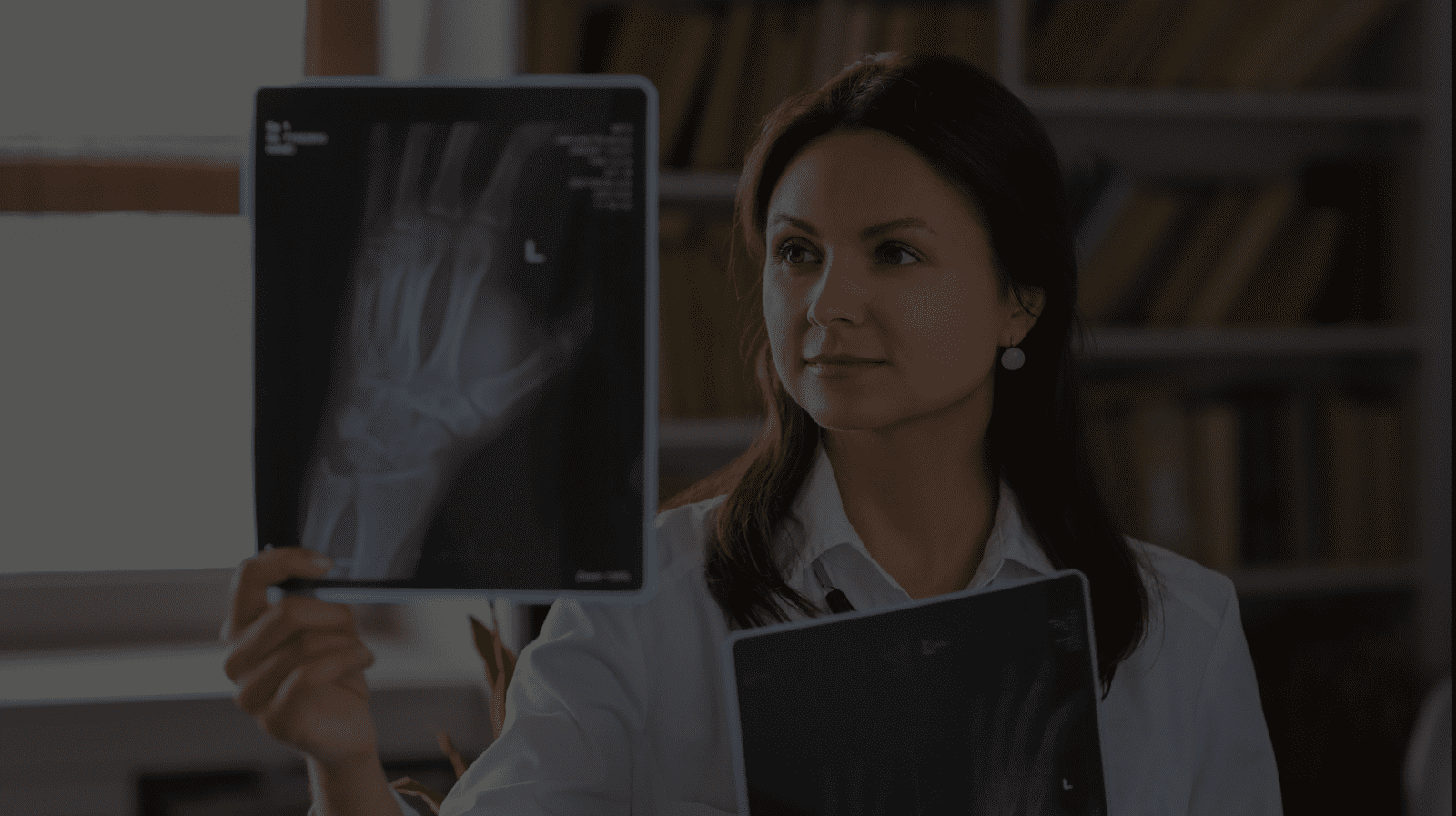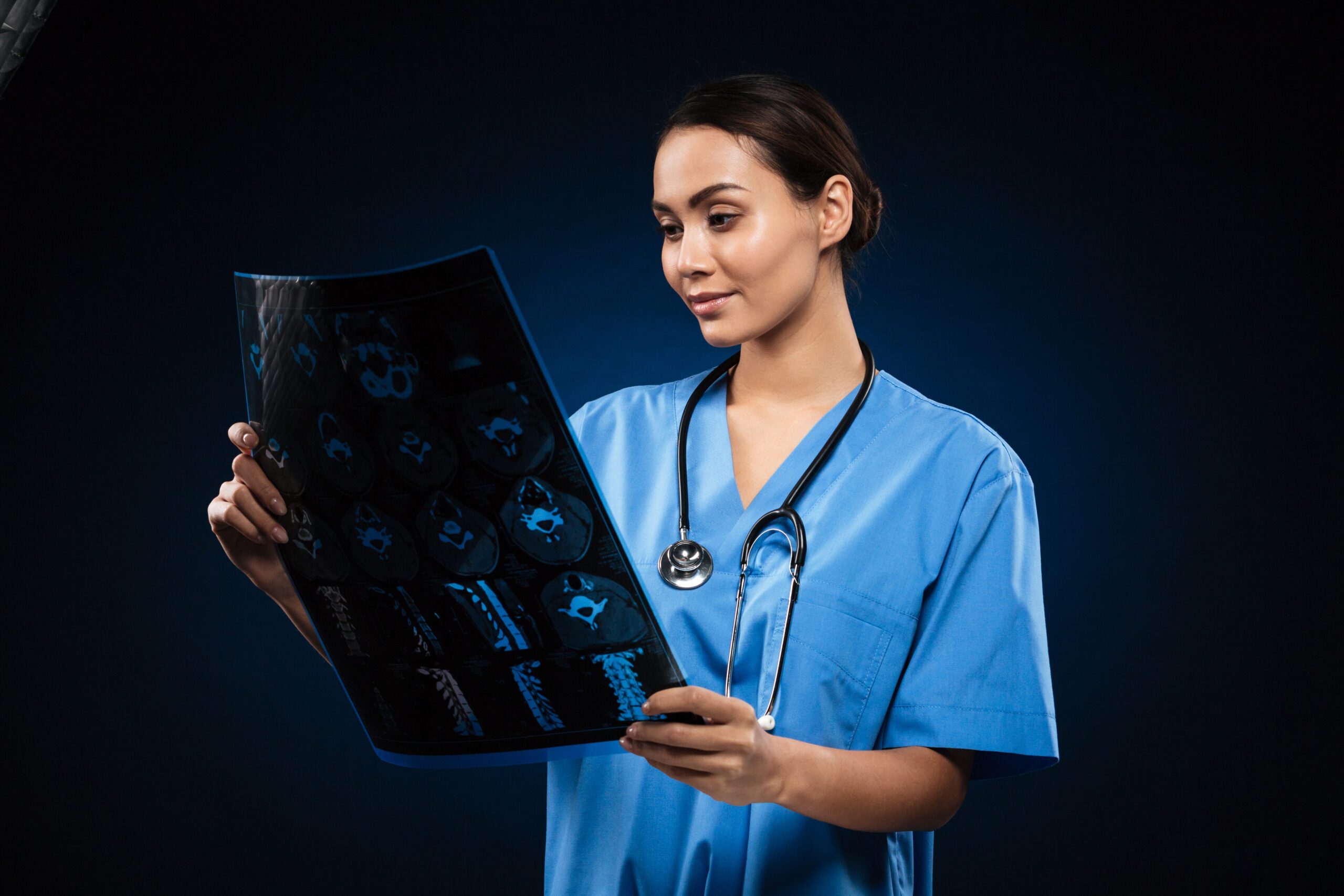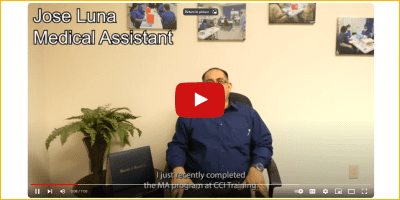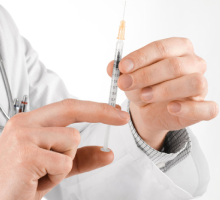
Radiology Technician (Limited-Scope) Training Program
Passionate about healthcare and technology? Our limited Radiology training might help you start a new career!
Online Program with Local Clinical Rotations
Upon completion of the program, the student will receive a Certificate of Completion in Radiology Technician (Limited Scope).

Learn With Your Instructors
Get hands-on training at clinicals at medical facilities near you.
Objective of the Program: Cross-train students in a multitude of allied health disciplines to equip students with the knowledge and skills required for entry-level employment.
Ready to advance your career?
Enroll in CCI’s Radiology Tech Program (limited-scope).
Get the Job
Get Certified
Get Trained

Home » Radiology Technician Training
Fast-Track Radiology Training at CCI Training Center

Fast-Track Vocational Training.

Get your American Registry of Radiologic Technologists (ARRT) certification in just 3 weeks.

No prior experience is necessary.
If you’re interested in medicine, patient care, technology, and working with data, a career in radiology might be a good fit for you.
We here at CCI Training Center, your Radiology Tech school, solve your query of “how to become a radiologic technician”.
We provide training starting from the very basics. The Radiology Technician(limited-scope) training program is taught by expert instructors with real-world experience. When you join our classes, you’ll have the chance to collaborate with classmates while guided by qualified, experienced tutors.
A student can also know the net price through the CCI Training Center Net Price Calculator.
The program also prepares students for the ARRT-Administered State Licensing Exam through coursework that incorporates:
CCI Virtual Tour – Online Allied Health Programs
- Lectures
- Simulation labs
- Critical thinking exercises
- Quizzes
- Collaboration
- Projects
- Assessments
- Clinical rotations aligned with core examination content
Learning Outcomes of Radiology Technology Program,
(Limited-Scope)
The Radiologic Technician schooling at CCI Training Center comes with many perks. Here is the list of learning outcomes of the program:
Training
Prepares students for limited-scope radiologic imaging tasks.
Supervision
Limited radiology technicians work under RT supervision with a limited license for specific anatomical regions, varying by state.
Technology
Curriculum
Covers radiology safety, positioning, patient care, equipment care, legal/ethical requirements, and standards of care.
Careers
Graduates can pursue roles such as limited radiology technician, radiology scheduler, radiology assistant, clinical assistant, or patient care technician in hospitals.
Courses the Program
The Radiology training program will cover X-ray, CT, and MR imaging equipment, their key components, and much more! Here is the list of the courses we provide in the program:
The course aims to equip students with skills to provide administrative, creative, or technical services. With a focus on communication skills, time management, and organization, technical proficiency with the Microsoft Office Suite and Google Workspace.
Students will learn to work with online collaboration apps such as Basecamp for task management and project tracking. In addition, they will learn to use virtual meeting tools such as Zoom and Google Meet.
The course introduces Limited Scope Radiology Technician program students to studying medications and drugs.
They will learn the sources of drugs, their generic and brand names, the legal classification of drugs, routes and drug administration, and describe drug interactions.
The course introduces the etymology of medical language, prefixes, suffixes, and roots words, and combining forms.
Students will learn related medical terminology, anatomy, physiology, and pathophysiology of each body system. Emphasis is placed on the relationship between body structure and function and the procedures standard in healthcare.
This practical course will help students learn and practice using a standard medical records system management software application in a simulated medical office.
Students will learn and practice entering patient information, posting charges and payments, running financial reports, and filing insurance claims. The course also focuses on the health record side of electronic records and will provide students with hands-on experience documenting patient histories, medications, procedures, injections, and laboratory testing.
The program includes this course to provide students with the concept of optimal patient care and an overview of the foundations of radiography and the practitioner’s role in the health care delivery system. A review of general mathematics and its applications in radiology is also included.
Students will learn basic formulas and calculations radiographers use to produce high-quality images. The teachings will include the understanding of the physical and psychological requirements of a patient, while closely monitoring the principles, practices, and policies of healthcare organizations, in addition to the professional responsibilities of the radiographer and the technicians.
Routine and emergency patient care are also covered in the course.
The course provides an overview of the principles of the interaction of radiation with living systems. How radiation affects molecules, cells, tissues, and the body is presented in detail.
Factors affecting biological response are presented, including acute and chronic effects of radiation. The course also presents an overview of the principles of radiation protection, including the responsibilities of the radiographer for patients, personnel, and the public.
Radiation health and safety requirements of federal and state regulatory agencies, Accreditation agencies and health care organizations are incorporated in the course, and also the teachings for the professional responsibilities of the radiographer related to infection control and how standard precautions play a role in preventing illness and disease.
This course provides the knowledge base necessary to learn and demonstrate proper positioning techniques required to perform standard imaging procedures of the chest, abdomen, spine, bony thorax, upper/ lower extremities, skull, and facial bones.
Students will also learn proper shielding techniques and the use of x-ray-related positioning equipment such as sponges and wedges. The course also focuses on essential patient instructions that must be conveyed before exposure to ensure quality images are produced.
In this course, students will learn about the factors affecting radiographic quality, including imaging equipment, image processing, and image display.
The course aims to teach students in detail about digital imaging characteristics, components of the radiographic unit, and the principles and operation of digital imaging systems used in diagnostic radiology. It will also discuss criteria for image evaluation, quality assurance, and quality control.
This course is designed to provide a comprehensive review of the program learning objectives and to prepare students for their limited-scope radiology core exams.
This specific course prepares students for career search and advancement.
Students will learn resume writing, interviewing, networking, effective communication, managing time effectively, and using internet-based websites in the job search.
Practice interviews will be a significant add-on in this allied health program.
In this course, students will be assigned to one or more medical offices, clinics, or imaging centers to utilize the knowledge and skills acquired in the classroom and apply those principles in a functional medical environment.
They will gain valuable hands-on experience by assisting in the performance of radiologic imaging and other common duties expected of a Limited-Scope Radiology staff member. This will occur under the supervision and direction of an RT and other integral members of the healthcare team.
Why Choose the Radiology Technician (Limited-Scope) Training Program
The fast-track radiology program takes only 8 months to complete and prepares students to work as radiology technicians in diagnostic centers, hospitals, and clinics. With over 40 years.

National Accreditation
CCI Training Center has national accreditation from the ACCET – Accrediting Council for Consulting Education & Training, a reliable authority per the U.S. Department of Education.

Interactive Learning
We offer Interactive Distance Learning (IDL), which gives students a personalized learning experience that fits into their lives.

Career Services Support
In addition to training and classes, these include interview preparation, job placement resources, and more.

Weekly Online Live Lectures
CCI Training Center provides you with the benefit of weekly live lectures. All our lectures and simulations are 100% remote.

Financial Aid Assistance & Support
For qualified students, we offer financial aid options, including federal grants, low-interest loans, scholarships, and Workforce funding to help you pay for your training.

Hands-On-Training
At CCI Training Center, we have local medical facilities near the students’ location for externships.
This is to gain hands-on experience in a medical facility for them.
Certifications for a Radiology Technician
ARRT - Limited Scope
Focuses on specific radiology procedures, limiting the scope of practice. It’s designed for those performing a narrow range of X-ray exams, often in specialized settings.
OSHA - National Safety Council
Certifies individuals on workplace safety, including radiation safety protocols. It ensures compliance with OSHA standards, which is crucial in radiology settings.
First Aid - National Safety Council
Provides essential skills for immediate response to medical emergencies. It equips individuals to handle situations before professional medical help arrives.
Job Outlook for Radiology Technicians
There are various opportunities as a radiology technician in the medical field. Have a look at it:

✔ Faster than average job growth projected (6% from 2023-2033).
✔ Significant job openings expected (around 16,000 annually).
✔ Strongest growth in MRI (8%) and Diagnostic Medical Sonography (15%).
✔ Driven by an aging population and technological advancements.
✔ Most jobs are in hospitals and physicians’ offices.
✔ Good overall prospects, especially for multi-certified technologists.
For more information, Click here:
What Our Students Say About Our Radiology Technician Training Program
We strive to offer the best Medical Assistant program in Arlington, Texas. See for yourself what our students have to say about their experience learning in this program.

I got hired on at a clinic and became the clinic manager within the first week of being there Wow so we’re at instead of women’s clinic and relay so my teacher was fantastic not only did she teach us everything that we needed to know from the school but she taught us everything outside things that aren’t in the books how to deal with certain situations real-life things that come into clinics every day.

I just recently completed the mma program at CCI training. I feel like I accomplished something that I really wanted to do for a long time. I like the experience that I had here at CCI training, the hands-on experience that I received when I was doing my labs and the instructor Mr Marion is very good at instructing us how to do our lab work and stuff. Right now I’m currently working at the externship site.
Radiology Courses Online and the Program Duration
Join the Radiology Tech programs to learn about X-ray, CT, and MR imaging equipment, their key components, and much more! Here we should list and explain the COURSES and BUNDLES that may include radiology.
RAD01
Introduction to Radiography/Positioning Techniques
The course introduces students to the basics of providing excellent patient care and the key principles of radiography. It covers the role of radiographers in the healthcare system and focuses on understanding patients’ physical and emotional needs.RAD02
Radiation Safety and Infection Control
You get an overview of how radiation interacts with living systems. It explains the effects of radiation on molecules, cells, tissues, and the entire body. Students will learn about factors influencing the body’s response to radiation, including short-term (acute) and long-term (chronic) effects.
RAD04
Image Production and Evaluation/Radiology Lab
The course is designed to help students understand the principles, components, and operation of digital imaging systems used in diagnostic radiology. It also covers how images are produced.
Other Healthcare Programs offered at CCI Training Center, Arlington, Texas
Medical Assistant with Clinical Labs Program
Medical Assistant with Clinical labs Program. Online, except for clinical labs. Enroll now and become a medical assistant in a few months.

Sterile Compounding (IV) Certification
Sterile Compounding (IV) Certification. Online, except for clinical labs. Enroll now and Become certified in Sterile Compounding in a few months.

Frequently Asked Questions
A radiologist is a medical doctor who specializes in using imaging techniques to diagnose and treat patient injuries and illnesses. They use tools like MRIs, X-rays, CT scans, ultrasounds, and PET scans to help identify medical issues and plan treatments.
As of 2023, the U.S. Bureau of Labor Statistics (BLS) reported that radiologic technicians earned an average salary of $76,020 per year.
A radiology technician is a healthcare professional who helps diagnose and treat patients by using advanced imaging equipment. They perform physical exams and operate machines like:
- X-rays
- Mammography machines
- CT scans (Computerized Axial Tomography)
- PET scans (Positron Emission Tomography)
- MRI machines (Magnetic Resonance Imaging)
We also provide certification and positions for someone with a Limited Radiology Certification.
Radiology manager – with an average annual salary of $110,000 to $130,000.
Yes, radiology can be a high-paying field, depending on the role and level of expertise.
Radiology technicians help patients through medical imaging procedures, ensuring they feel comfortable and informed. Their main job is to produce clear, high-quality images of the body that doctors can use for diagnosis and treatment.
Radiologists are medical doctors who use imaging technology to diagnose and treat patients. To become a radiologist, you’ll need an undergraduate degree, four years of medical school, an internship, and a residency program.
With a radiology degree, you can work with medical imaging tools like X-rays, MRIs, CT scans, and ultrasounds to diagnose and treat injuries and illnesses.
Human anatomy, radiation safety, Patient positioning for medical imaging, Radiation physics, care ethics, and pathology.
Patient care, career opportunities, and the complexity of the field.
Ready to Begin Your Journey?
Are you interested in learning more? It all starts with a simple conversation with one of our friendly and helpful Admissions Coordinators.
We want to learn more about your career goals, answer any questions you have, and help set you on the path toward success

